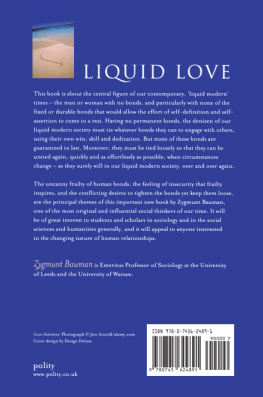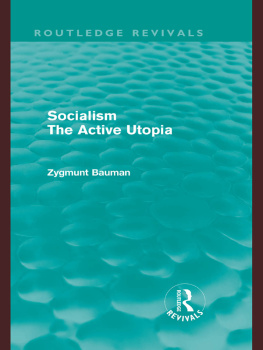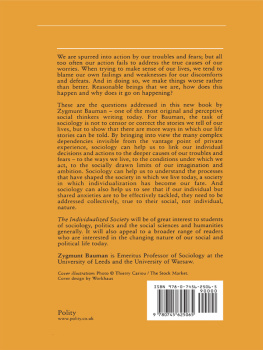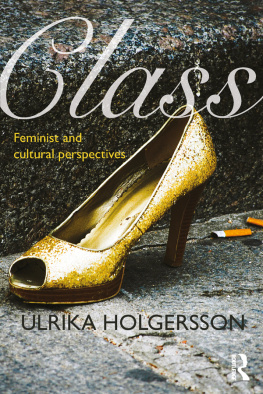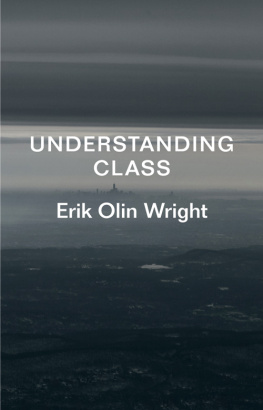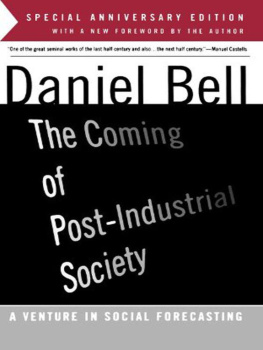Routledge Revivals
Memories of Class
First published in 1982, Professor Baumans discussion of the mechanism of class formation and institutionalisation of class conflict argues that our understanding of changes in social and political structure has been hindered by the freezing of concepts of class in the ice-age of industrial society. He investigates the impact of historical memory on the early transformation of rank into a class society, and on the current confusion in the analysis of the crisis of late-industrial society.
The book traces the formation of a class society back to the patterns of surveillance power and control, and shows how these patterns preceded and made possible the industrial system. Subsequently economised into the industrial system, these same patterns of control have now proved to be inadequate under social conditions brought about by this economisation of the power conflict.
Memories of Class
The pre-history and after-life of class
Zygmunt Bauman
First published in 1982
by Routledge & Kegan Paul Ltd
This edition first published in 2010 by Routledge
2 Park Square, Milton Park, Abingdon, Oxon, OX14 4RN
Simultaneously published in the USA and Canada
by Routledge
270 Madison Avenue, New York, NY 10016
Routledge is an imprint of the Taylor & Francis Group, an informa business
This edition published in the Taylor & Francis e-Library, 2009.
To purchase your own copy of this or any of Taylor & Francis or Routledges collection of thousands of eBooks please go to www.eBookstore.tandf.co.uk.
1982 Zygmunt Bauman
All rights reserved. No part of this book may be reprinted or reproduced or
utilised in any form or by any electronic, mechanical, or other means, now
known or hereafter invented, including photocopying and recording, or in any
information storage or retrieval system, without permission in writing from the
publishers.
Publishers Note
The publisher has gone to great lengths to ensure the quality of this reprint but
points out that some imperfections in the original copies may be apparent.
Disclaimer
The publisher has made every effort to trace copyright holders and welcomes
correspondence from those they have been unable to contact.
ISBN 0-203-85720-8 Master e-book ISBN
ISBN 13: 978-0-415-57127-2 (hbk)
ISBN 13: 978-0-203-85720-5 (ebk)
ISBN 10: 0-415-57127-8 (hbk)
ISBN 10: 0-203-85720-8 (ebk)
Memories of class
International Library of Sociology
Founded by Karl Mannheim
Editor: John Rex, University of Aston in Birmingham

Arbor Scientiae
Arbor Vitae
A catalogue of the books available in the International Library of Sociology and other series of Social Science books published by Routledge & Kegan Paul will be found at the end of this volume.
Memories of class
The pre-history and after-life of class
Zygmunt Bauman
Routledge & Kegan Paul
London, Boston, Melbourne and Henley
First published in 1982
by Routledge & Kegan Paul Ltd
39 Store Street, London WC1E 7DD,
9 Park Street, Boston, Mass. 02108, USA,
296 Beaconsfield Parade, Middle Park, Melbourne, 3206, Australia and
Broadway House, Newtown Road,
Henley-on-Thames, Oxon RG9 1EN
This edition published in the Taylor & Francis e-Library, 2009.
To purchase your own copy of this or any of Taylor & Francis or Routledges collection of thousands of eBooks please go to www.eBookstore.tandf.co.uk.
Zygmunt Bauman 1982
No part of this book may be reproduced in
any form without permission from the
publisher, except for the quotation of brief
passages in criticism
Library of Congress Cataloging in Publication Data
Bauman, Zygmunt.
Memories of class.
(International library of sociology)
Bibliograhy: p.
Includes index.
1. Social classesHistory. I. Title. II. Series.
HT621. B38 1982 305. 5' 09 82-9828
ISBN 0-7100-9196-6 AACR 2
ISBN 0-203-85720-8 Master e-book ISBN
Contents
Acknowledgments
I am deeply grateful to Philip Abrams, Reinhard Bendix, Thomas Bottomore, Anthony Giddens, Ralph Miliband and Dennis Warwick, who read various parts of this work at various stages of its production, offered their insightful criticism and invaluable advice and greatly contributed to the ultimate maturation of the project. I wish I could make a better use of the inspiring ideas I owe them.
Z.B., Leeds
Class: before and after.
A preview
Memory is the after-life of history. It is through memory that history continues to live in the hopes, the ends, and the expectations of men and women as they seek to make sense of the business of life, to find a pattern in chaos, to construe familiar solutions to unfamiliar worries. Remembered history is the stuff of which these hopes, objectives and insights are made; in turn, the latter are the repositories where images of the past are rescued from oblivion. Memory is history-in-action. Remembered history is the logic which the actors inject into their strivings and which they employ to invest credibility into their hopes. In its after-life, history reincarnates as a Utopia which guides, and is guided by, the struggles of the present.
Remembered history seldom agrees with the history of the historians. This does not mean that historians, great or small, are immune to the group practice which shapes historical memory; neither does this mean that the work of the historians exerts no influence on the way the memory of the group selects and transforms its objects. By and large, however, remembered history and the history (histories?) of the historians follow their own respective courses. They are propelled by different needs, guided by different logic, and subject to different validity tests. There is little point, therefore, in asking whether the beliefs in which remembered history may be verbalised are true or false, by the standards set by professional historical inquiry. The materiality of remembered history, its effectivity, indeed, its historical potentialdo not rest on its truth so understood.
For a sociologist trying to grasp the springs of group practices, remembered history (or historical memory) is not a competitive account of something which can be presented by another, perhaps better, narrative; it is not an object of critique, a text called upon to hold out its credentials, and dismissed once it fails to do so. Sociology is neither a rival, nor the judge of historical memory. The failure of the latter to pass the professional truth-test is therefore of no relevance to the question of its sociological importance.
The phenomenon of historical memory presents, however, problems more complex than this of the choice between the attitude of critique and the attitude of description and explanation. Before such a choice is made, remembered history must first be constructed. Unlike the history of the historians, remembered history cannot be referentially defined by pointing to so many books where its content has been duly and fully recorded. Worse still, it cannot always be gauged by extending inquiry to a new type of potentially objective evidencesay, the sales or library demand for some rather than other historical books, the intensity of the contemporary interest in or neglect of various types of historical literature, etc.; this latter method, if effective, is naturally limited to the historical memory of the educated, the literate, the articulate. But not all historical actors belong to this category. In the case of those who do not (who neither write the books nor read them), one would search in vain for the direct or indirect articulations of history as they remembered it. Also, the recently developing methods of oral history would shed only oblique light on the issue; the problem with remembered history of virtually all groups except the educated elite is not merely that it has not been recorded in writing, but that it rarely, if ever, surfaces to the level of verbal communication, written or oral. The historical memory of a group which has been ploughed into its collective actions, which finds its expression in the groups proclivities to some rather than other behavioural responses, is not necessarily recognised by the group as a particular concept of the past. The authority of the past, and the ensuing need to possess some clear knowledge of the past in order to select right patterns of present conduct, is a philosophers issue, read into the collective actions by the interpreters, and not an organic factor of the action itself. The existential mode of historical memory is not unlike that of grammar. For the interpreter, the observed behaviour is incomprehensible unless its presence is assumed, and remains unexplained as long as its guiding rules remain inarticulate. But the actors themselves need not have the consciousness of the rules in order to follow them properly; and it is not they whom the interpreter would wish to interrogate in his search for the consistent formulation of the rules.


